“Your mind needs rest as much as your body does—don’t let screens steal it.”
Struggling to sleep? Discover 5 proven swaps to reduce screen time before bed and improve your sleep hygiene for a healthier, calmer night.
Introduction
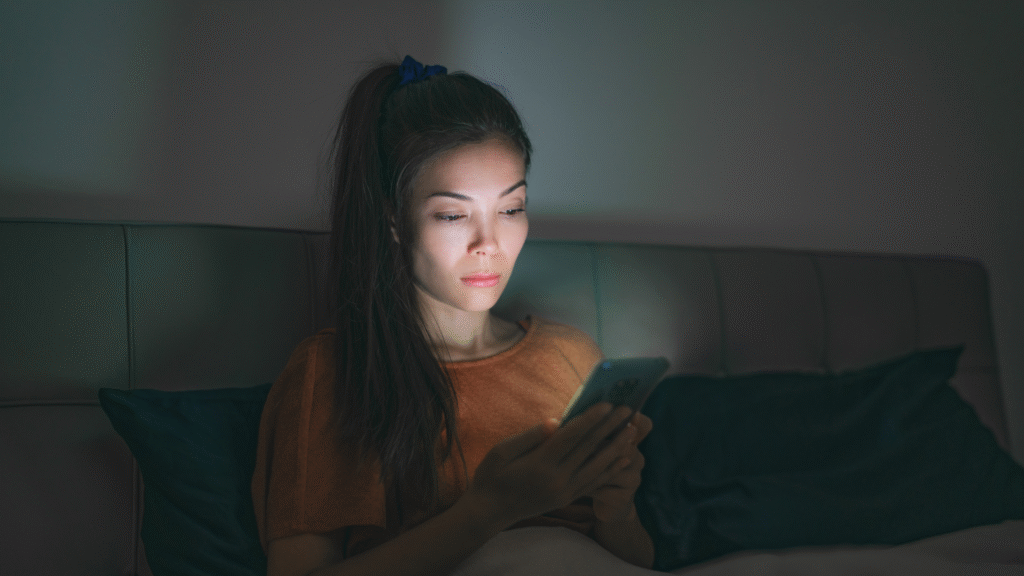
Be honest—how many times have you said, “Just five more minutes” while scrolling on your phone at night, only to realize an hour has passed or maybe the whole night has passed? We’ve all been there. It feels harmless, right? A little Instagram, a quick YouTube video, maybe check one last email, I’ll sleep after forwarding this last reel to my friend, and so on. But here’s the truth: that small habit is quietly robbing you of quality sleep.
The blue glow of screens tricks your brain into thinking it’s still daytime and you spent hours scrolling on your phone, making it harder to switch off and fall asleep. And guess what the worst part is? You wake up groggy, cranky, and wondering why your mornings feel like a battle and feel sleepy the whole day.
If this sounds like you, you’re not alone. And the good news? You can break the cycle—without feeling like you’re giving up your evening comfort. In this article, I’ll show you why reducing screen time before bed matters and share 5 realistic swaps that make it easy to wind down naturally.
Table of Contents
Why Reducing Screen Time Before Bed Matters
Swap 3: Light Stretching or Yoga
Swap 4: Listen to Calming Music or Podcasts
Swap 5: Practice Mindfulness or Meditation
Bonus Tips for an Effective Evening Routine
Why Reducing Screen Time Before Bed Matters
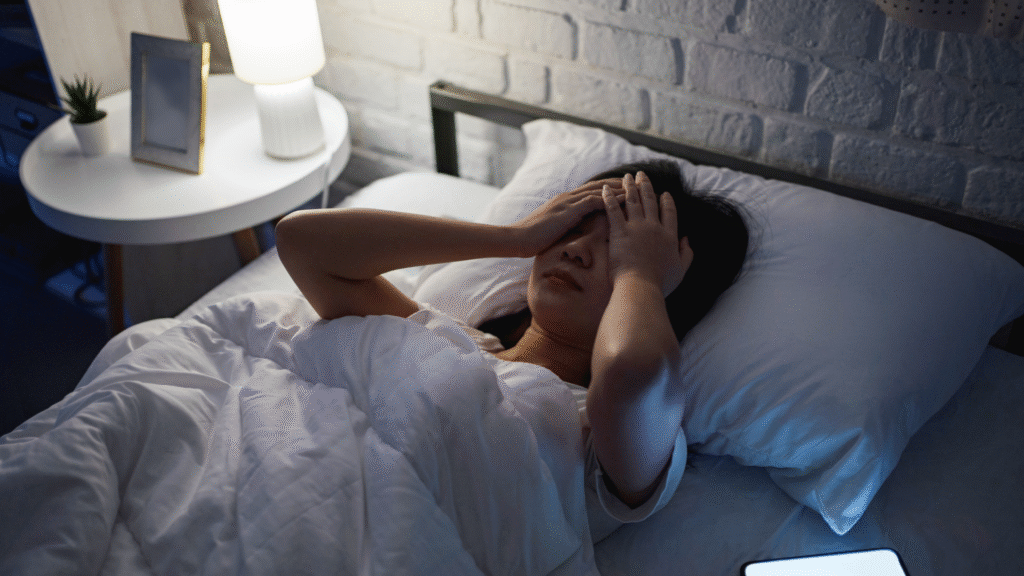
Scrolling before bed seems harmless, but research shows it’s a big sleep killer. Why? Blue light from screens delays melatonin, the sleep hormone your body naturally produces when it’s dark. The result? You stay alert when you should be winding down because of your phone screen light, and it greatly affects your body and mind.
According to Harvard Health, using screens right before bed can delay sleep by as much as 90 minutes. Over time, this leads to:
- Poor-quality sleep
- Higher stress and anxiety
- Lack of focus and Daytime fatigue
If you’ve ever woken up tired even after 8 hours in bed, chances are late-night scrolling is part of the problem. The fix? Create a screen-free buffer before bedtime—and fill it with habits that require no screen time that relax your mind instead of overstimulating it with stress.
5 Proven Swaps Instead of Screen Time
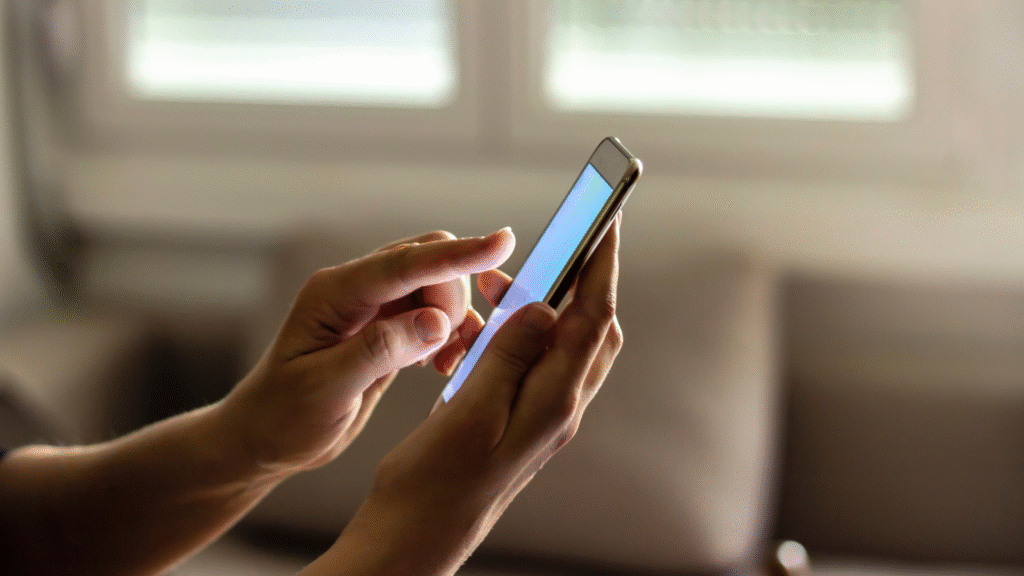
These swaps are simple and easy to do, effective, and don’t feel like punishment on the other hand, you’ll end up enjoying it. Let’s dive in.
Swap 1: Read a Physical Book

Something is calming about flipping through actual pages. Reading a physical book (not on your phone or tablet) helps your brain disconnect from the digital buzz and reading makes you relax too.
Why it works:
- Up to 68% of stress can be reduced by reading, according to the University of Sussex.
- It signals your brain: “We’re slowing down now.”
Pro tip: Stick to light or uplifting reads before bed—save the suspenseful thrillers for daytime! It gradually helps you drift into the land of dreams
Swap 2: Journal Your Thoughts
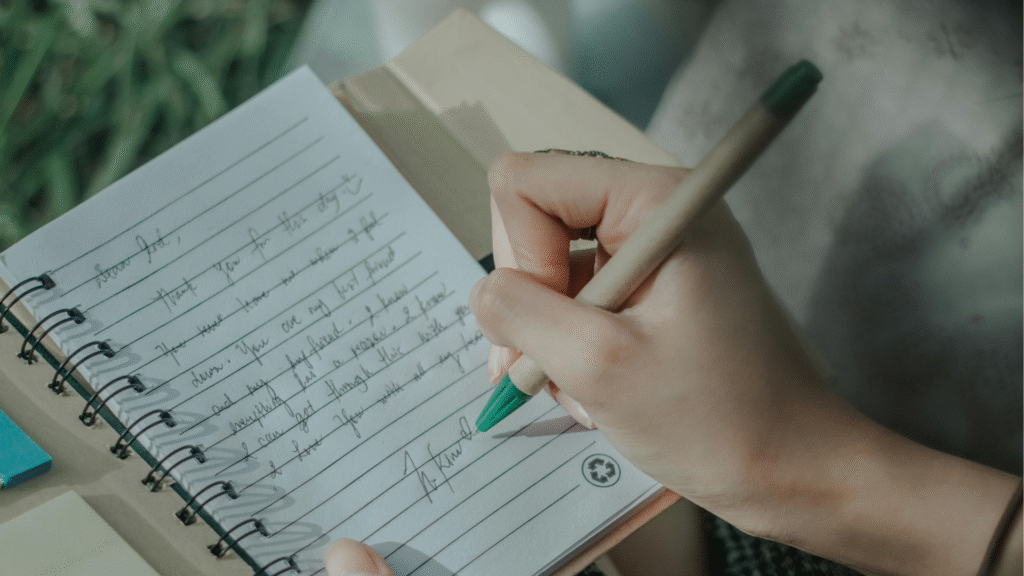
Ever feel like your brain won’t shut up at night and want you to become a night owl? That’s why so many of us reach for our phones because we are unable to sleep—to distract ourselves. But journaling is a healthier, more effective way to clear mental clutter, and it also boosts your way of thinking.
What to write about:
- 3 things you’re grateful for
- A highlight from your day
- A short plan for tomorrow, so you stop worrying about it (again, physical journal, not the digital one)
Example: “Today I’m thankful for coffee, a good workout, and catching up with an old friend.”
This simple practice takes 5 minutes and can completely change your evening mood.
Swap 3: Light Stretching or Yoga
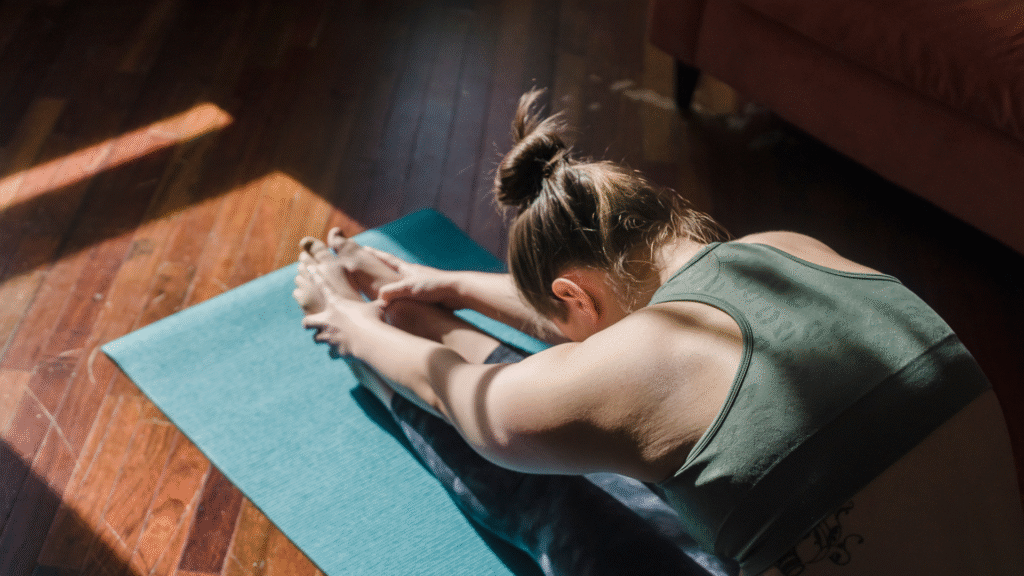
Your body needs to unwind as much as your mind. A few minutes of gentle stretching or yoga can melt away the tension of the day and also make you relax so you can sleep calmly without any stress on your mind and body.
Benefits:

- Reduces stress hormones (like cortisol) and gives you a sense of relief.
- Ease muscle stiffness and relieve them.
- Signals your body it’s time to rest.
Try this mini routine:
- Child’s Pose (1 minute)
- Forward Fold (30 seconds)
- Legs-Up-The-Wall (2 minutes)
Swap 4: Listen to Calming Music or Podcasts
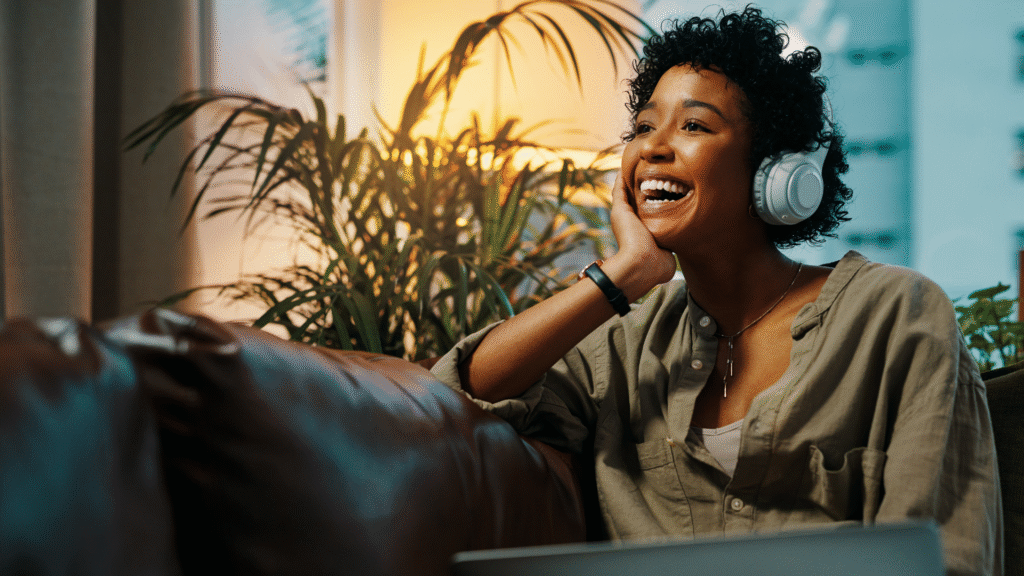
If silence feels too quiet, try audio relaxation instead of screen time, and many people testify that it helps them sleep calmly there mind and make them relax, so they can sleep.https://heathyhabit.online/
- Soft music, nature sounds, or bedtime podcasts can calm your nervous system and help you to sleep soundly.
- Research shows slow-tempo music lowers heart rate and helps you fall asleep faster.
Pro tip: Set a sleep timer so the audio doesn’t play all night.
Swap 5: Practice Mindfulness or Meditation

Instead of endless scrolling, give your brain what it truly needs: stillness. Even 5 minutes of mindful breathing can do wonders, it also helps in mental growth and gives you a sense of relief.
Simple breathing exercise:
- Inhale for 4 seconds
- Hold for 4
- Exhale for 4
- Repeat for 5 minutes
Apps like Calm and Headspace are great—but if you want to avoid screens altogether, just memorize this simple pattern and you’ll magically feel relieved.https://www.calm.com/
Bonus Tips for an Effective Evening Routine

- Set a Digital Curfew: No screens at least 30–60 minutes before bed.
- Use Warm Lighting: Swap harsh white lights for softer, warmer tones.
- Keep It Consistent: Go to bed at the same time every night—your body loves routine.
- Charge Your Phone Away from Bed: Out of sight, out of mind.
FAQs
Q1: How long before bed should I stop using screens?
Ideally, 30–60 minutes before bed for the best sleep quality.
Q2: Can I read on an e-reader?
Yes, but choose one with e-ink technology and no blue light.
Q3: What’s the easiest first step?
Start with a 10-minute digital detox before bed, then increase it gradually.
Q4: Does blue light really affect sleep?
Yes. Blue light delays melatonin production, which makes it harder to fall asleep.
Conclusion
The truth is, late-night scrolling isn’t just a harmless habit—it’s stealing your rest and energy and causes a great amount of stress to not just your body but also to your mind too and you feel too lazy to wake up in the morning, and the whole day feels so stressful. But breaking it doesn’t mean giving up comfort. Start with these 5 proven swaps, and you’ll notice the difference in just a few nights.
Pick one tonight—just one. Close your apps, put your phone down, and try something calming instead. Your future self will thank you with better mornings and more energy.
